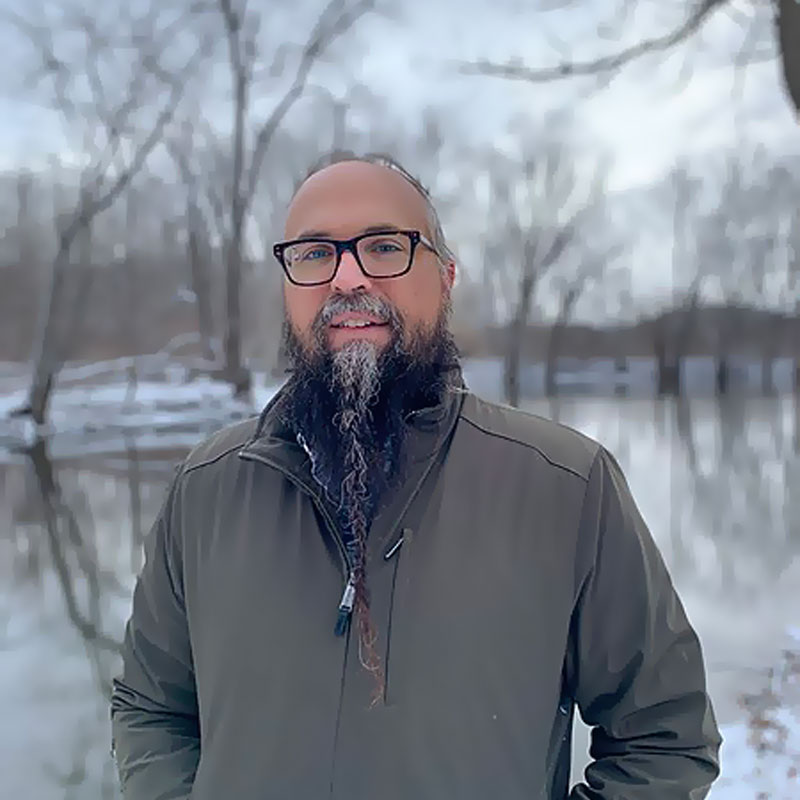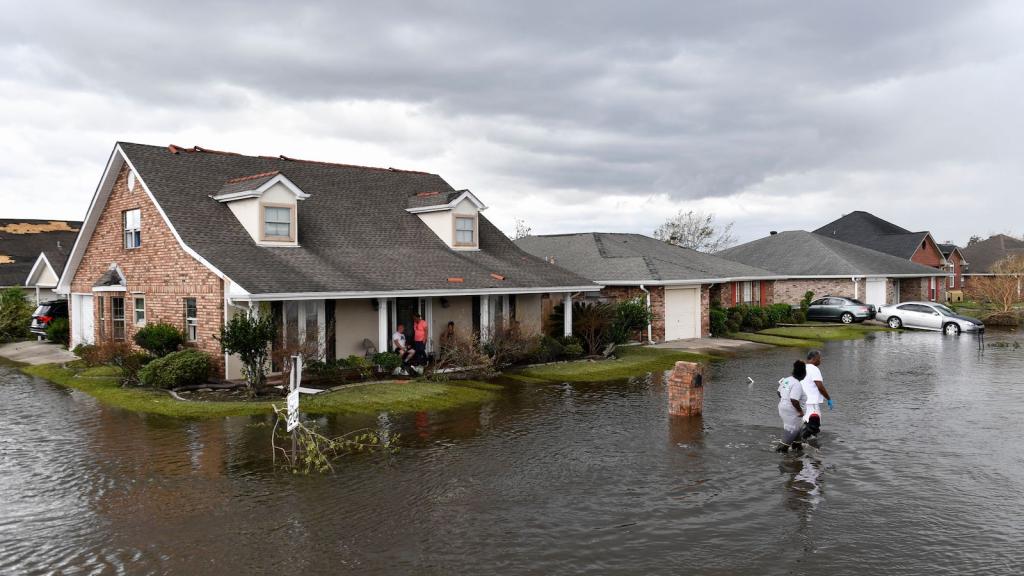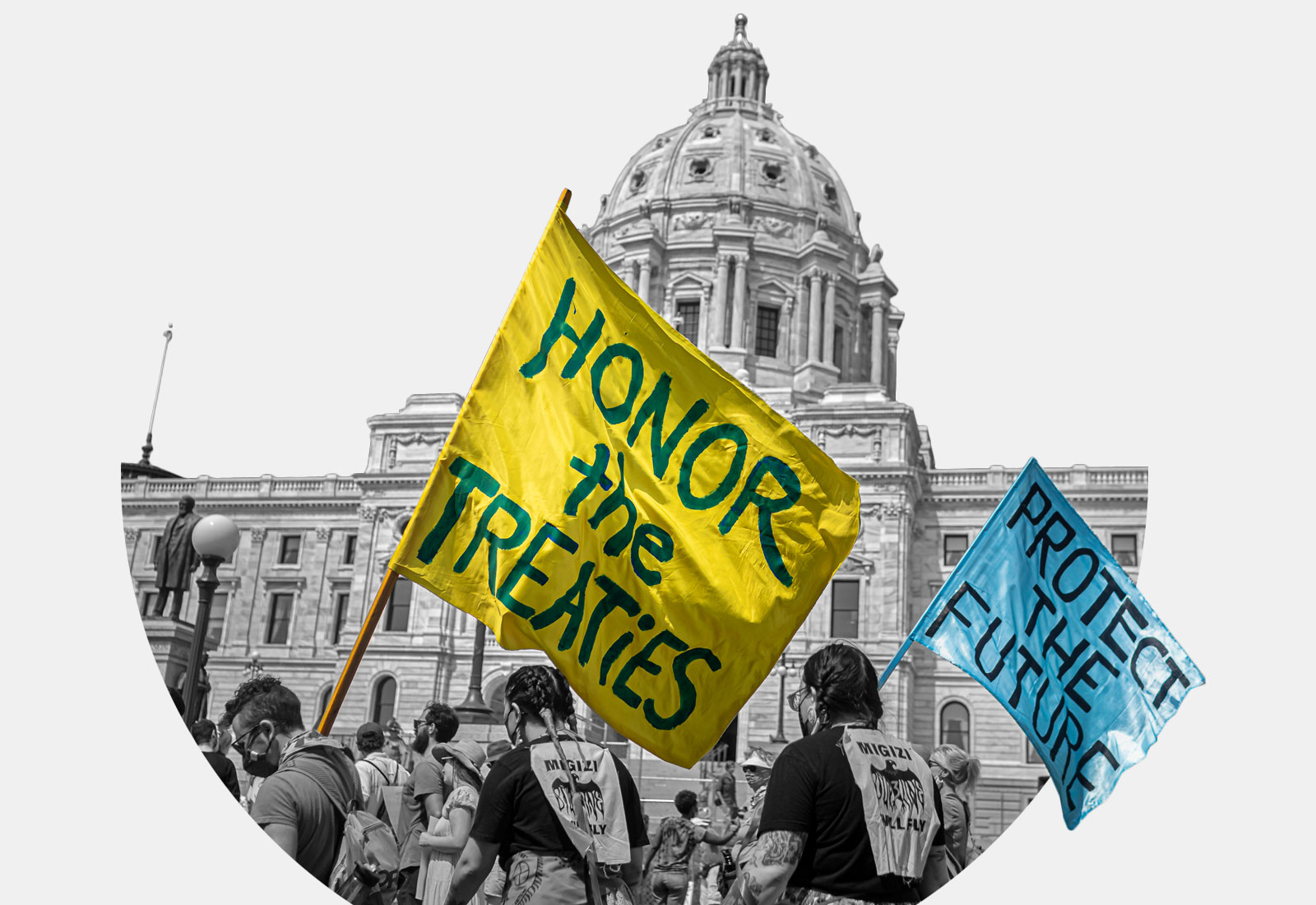Climate change is often thought of in linear time, as in a series of events leading toward something. How if we don’t limit warming to under 2 degrees Celsius in the next several decades, for example, we face a cascade of natural disasters. But Kyle Whyte, an environmental justice professor at the University of Michigan, suggests that climate change should also be thought of through a concept known as “kinship time.”
Pulling from traditional Indigenous ways of thinking, kinship time is understanding time through the lens of relationships. Not just familial or human-to-human, but the everyday relationships we invest our time into, ones of mutual responsibility, like mentor and mentee, or between communities, or with plants and animals. Qualities of a kinship relationship include consent, trust, and reciprocity.
The United States and many other parts of the world lack a good understanding of how much these informal relationships matter, Whyte argues. The climate crisis we face has been caused by the breakdown of our relationships over time, and to solve the crisis we must repair those relationships first.
In an interview with Grist, Whyte, a member of the Potawatomi Nation who serves on the White House Environmental Justice Advisory Council, explains exactly what kinship time is, and lays out the case for using it to frame the climate challenge.
“The urgent issue is not just that there are environmental perils coming, but rather that the climate crisis was built off of generations of inequity,” Whyte said. “If people don’t recognize that it’s a crisis of justice, as well as a crisis of the environment, then they’re going to continue to propose these problematic solutions.”

What does it mean to think about climate change through kinship time?
The problem we’re facing right now from an environmental justice standpoint is that people are using the urgency of climate change that you can only get from linear time to propose solutions that we know are going to actually be bad for many communities, including Indigenous people.
If you change your orientation toward time, and you look at the climate change crisis through kinship time, that’s a crisis that started several hundred years ago.
Climate change itself is not caused solely by the increased concentration of greenhouse gases in the atmosphere. It’s also caused by historic breakdowns in kinship relationships. Industries are responsible for the major physical drivers of climate change — extractive industries, fossil fuel industries, those industries that took root within the early 19th century in the Industrial Revolution.
In a context like the Americas, these industries took root because they dispossessed Native people of their land, which was a profound disrespect for kinship. A lot of Indigenous people will tell you that was a period when kinship relations were severely compromised. It’s experienced as a time of upheaval and suffering when these industrial industries established themselves. Then over time, as they’ve continued to grow, they’ve had a horrible impact on the climate system.
The urgent issue is not just that there are environmental perils coming, but rather that the climate crisis was built off of generations of inequity. If people don’t recognize that it’s a crisis of justice, as well as a crisis of the environment, then they’re going to continue to propose these problematic solutions.
What can people do to cultivate qualities of kinship: responsibility, consent, trust?
With respect to climate change, people are always concerned with the ecological tipping point — that point where the system will never recover to a place that it was before. But there are also relational tipping points. I believe those tipping points have already been passed.
The persistent breakdown of kinship makes it so that most solutions to climate change threaten to further undermine those communities that gave up so much, unwillingly and nonconsensually, for these industries to take root.
If people aren’t used to using the term kinship, they should think about their daily experiences with people who they know don’t trust them, who don’t yet believe that their consent is valued, and to realize that’s going to take time to repair that relationship. A kinship relationship can’t, in my opinion, be established quickly.
Are there any climate change projects that utilize this framework of kinship time?
A lot of different actions that tribes and Native organizations are taking come out of this attempt to generate kinship relationships where they have not been present. There are a number of tribes that have developed their own climate change plans. Part of what they’re seeking to do is suggesting that the point of a climate change plan is to protect kinship relationships with the environment.
You also see grassroots Indigenous organizations doing things like seeking to take control of financing mechanisms for being able to advance renewable energy on tribal lands. But at the same time, they’re having discussions about some of the problems with renewable energy, such as dirty supply chains.
Another key aspect of a lot of these plans is how the tribe is supposed to relate to the county, state, and federal government — attempting to figure out ways to plan for climate change, but where they’re able to create better bonds with the more dominant kind of institutions.
There hasn’t been a lot of reciprocity in terms of the state or the federal government really doing what they need to do to deepen those relationships. For example, a lot of federal agencies don’t invest enough time or have full-time staff that would work directly with tribes.
What does all of this mean for climate change solutions?
Many engineers or politicians have been in situations where they feel they’re offering some fantastic solution, but the community that’s on the receiving end of that solution says they don’t trust the entity. With the climate crisis and colonialism, where kinship between Native communities and communities of color in the U.S. has completely eroded, that means that when climate solutions come about, [project developers] can’t just say that the they’re going to be reciprocal, consensual, or trustworthy, because it might take years to actually get to that point.
You can’t solve that trust issue immediately.
People need to realize that on the one hand, renewable energy technology is important, but until people can find a way in which people of color, Indigenous, the global majority can actually exercise self determination — develop their own economies, use equitable financing mechanisms, participate equally in education and training, receive adequate technical assistance — then what we’re going to see is a world that may have a lower carbon footprint, but could be worse for people that get left behind. That happens when these infrastructure investments don’t really connect to what they would need to make up for generations of colonialism, racial capitalism, and patriarchy.
This interview has been edited for length and clarity.



